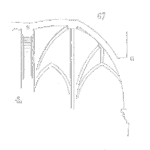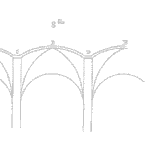
A Discussion About Drenick’s Theorem
Abstract
Fred and Philip Sage discussing the possible source of the widespread use of MTBF.
ᐅ Play Episode
Your Reliability Engineering Professional Development Site
Author of CRE Preparation Notes, Musings", NoMTBF, multiple books & ebooks>, co-host on Speaking of Reliability>/a>, and speaker in the Accendo Reliability Webinar Series.
This author's archive lists contributions of articles and episodes.
by Fred Schenkelberg 6 Comments

Fred and Philip Sage discussing the possible source of the widespread use of MTBF.
ᐅ Play Episode
by Fred Schenkelberg Leave a Comment

This is part of a short series on the common life data distributions.
The Gamma distribution is routinely used to describe systems undergoing sequences of events or shocks which lead to eventual failure. Also used to describe renewal processes. This short article focuses on 7 formulas of the Gamma Distribution.
If you want to know more about fitting a set of data to a distribution, well that is in another article.
It has the essential formulas that you may find useful when answering specific questions. Knowing a distribution’s set of parameters does provide, along with the right formulas, a quick means to answer a wide range of reliability related questions. [Read more…]
by Fred Schenkelberg Leave a Comment

There are many reasons or motivations to learn. From our boss asking us to solve a problem in an unfamiliar field of science, to simple curiosity.
When faced with an unusual failure mode, we need to learn what is causing the failure in order to solve the problem. When exploring a new material, we want to learn how it will fail in our design.
As reliability professionals, we are professional learners or should be.
Let’s take a look at a list of motivations that you may experience that prompt you to learn. When you review the past month or year, you will notice how much you learned.
When you feel one of these motivations, go with it. Learn, grow, and improve your capability as a reliability professional. Furthermore, you can foster these motivations with your team and colleagues, as well. [Read more…]
by Fred Schenkelberg 5 Comments

This is part of a short series on the common life data distributions.
The Weibull distribution is both popular and useful. It has some nice features and flexibility that support its popularity. This short article focuses on 7 formulas of the Weibull Distribution.
If you want to know more about fitting a set of data to a distribution, well that is in another article.
It has the essential formulas that you may find useful when answering specific questions. Knowing a distribution’s set of parameters does provide, along with the right formulas, a quick means to answer a wide range of reliability related questions. [Read more…]
by Fred Schenkelberg 2 Comments

The ability to determine the root cause of a failure is a skill. It requires agility, leadership, inquisitiveness, diligence, and technical skill. Successful RCA taps into your creativity and technical prowess. Using a structured approach helps.
[Read more…]
by Fred Schenkelberg Leave a Comment

Leadership is a difficult term to clearly define. A team leader may have poor or wonderful leadership skills. A product may lead in a market with a broad feature offering, yet not hold a recognized leadership position.
As a reliability engineer, you will find many opportunities to lead. Your ability to provide vision, direction, guidance, and support for a team enables you to affect change and accomplish goals. [Read more…]
by Fred Schenkelberg Leave a Comment

Monitoring reliability performance requires both measurement and reporting skills. Focusing on making decisions, we can tailor our metrics to improve our reliability program today. The right measures allow your team to spot problems and solve them.
[Read more…]
by Fred Schenkelberg Leave a Comment

On occasion, we want to estimate the reliability of an item at a specific time.
Maybe we are considering extending the warranty period, for example, and want to know the probability of no failures over one year instead of over the current 3 months.
Or, let’s say you talked to a bearing vendor and have the Weibull parameters and wish to know the reliability value over 2 years.
Whatever specific situation, you have the life distributions parameters. You just need to calculate reliability at a specific time. We can do that and let’s try it with three distributions using their respective reliability functions: exponential, Weibull, and lognormal. [Read more…]
by Fred Schenkelberg 13 Comments

Identifying risk is an important first step. It is not sufficient though.
Taking steps to deal with risk is an essential step. Knowing about and thinking about risk is not the same as doing something about risk.
Risk will occur. Some good, some bad. Some minor, some catastrophic. Your ability to mitigate risk allows you to proactively acknowledge and accommodate risks. Let’s talk about four different strategies to mitigate risk: avoid, accept, reduce/control, or transfer. [Read more…]
by Fred Schenkelberg Leave a Comment

Not all of us are fortunate enough to receive great feedback. We all do receive feedback, and some receive very little actionable feedback.
If you offer proposals, give presentations, make requests, or even just ask for a favor, you will receive some form of response. It often is just an answer to the call to action, and nothing more.
At some point, you may be ‘pulled aside’ so someone can provide you feedback on your behavior, your delivery, your ability or skill. It is this type of feedback that is essential to your improvement. [Read more…]
by Fred Schenkelberg Leave a Comment

Planning and Implementing a risk management framework is an admirable accomplishment. Now make sure it is running well and will do so into the future.
As with any process, there will be opportunities to make improvements. By monitoring and reviewing your program you will find what is working well and what is not. [Read more…]
by Fred Schenkelberg Leave a Comment

With the advent of ISO 31000 and other ISO standards suggesting organizational risk management practices, your organization may have or soon will implement a risk management plan. Reliability of your products, systems, or assets is an element of the organization’s risk profile.
As reliability professionals, your knowledge and skills are a natural fit within any risk management plan. You may focus exclusively on the reliability performance-related risks You may find the skills and tools to identify and mitigate risks play an important role beyond just reliability performance.
Large and small organizations face risks. The lines of communication differ as do the context, culture, and management practices between any two organization. The implementation of a risk management plan has to fit your organization.
Here are few general guidelines and practical considerations when implementing your organization’s risk management plan. [Read more…]
by Fred Schenkelberg 2 Comments

The process to design and deliver a reliable product involves identifying risks. Taking action to understand or mitigate those risks involves much of the day to day work of reliability engineering.
Taking action to set expectations and improve decisions involves change. Change of understanding, change of specifications, change of expectations, change of designs, processes, and results.
It is the changes, big and small, that occur that achieve the desired results for the customer and organization.
You also know that not every suggestion is greeted warmly. Not every proposal is funded. Not every recommendation is accepted. [Read more…]
by Fred Schenkelberg 2 Comments

The uncertainty concerning the future performance of a product or system is a risk to the customer and supplying organization. A product that fails too often or in an unsafe manner may require repair, replacement, or a recall.
A product’s performance including its reliability performance reflects on the organization that designs, builds, and sells the product. A poor reliability performance is no longer a risk to that individual product, rather it is a risk to the product line and organization as well.
Reliability professionals have long been involved with identifying and mitigating risks. The increased emphasis on enterprise risk management through standards such as ISO 31000 require reliability professionals to consider the larger risk management framework and how reliability related risks fit within the larger context. [Read more…]
by Fred Schenkelberg Leave a Comment

We facilitate. As reliability professionals, we often lead teams to identify risk. We help cross-functional teams find and implement solutions. We bring people together and ease their ability to communicate clearly with each other.
Whether a leader or participant we have a role to achieve the desired goals. Our ability to facilitate enables us to work with others to get things done. Understanding how to facilitate well permits us to add value when leading or participating on a team. [Read more…]
 Ask a question or send along a comment.
Please login to view and use the contact form.
Ask a question or send along a comment.
Please login to view and use the contact form.